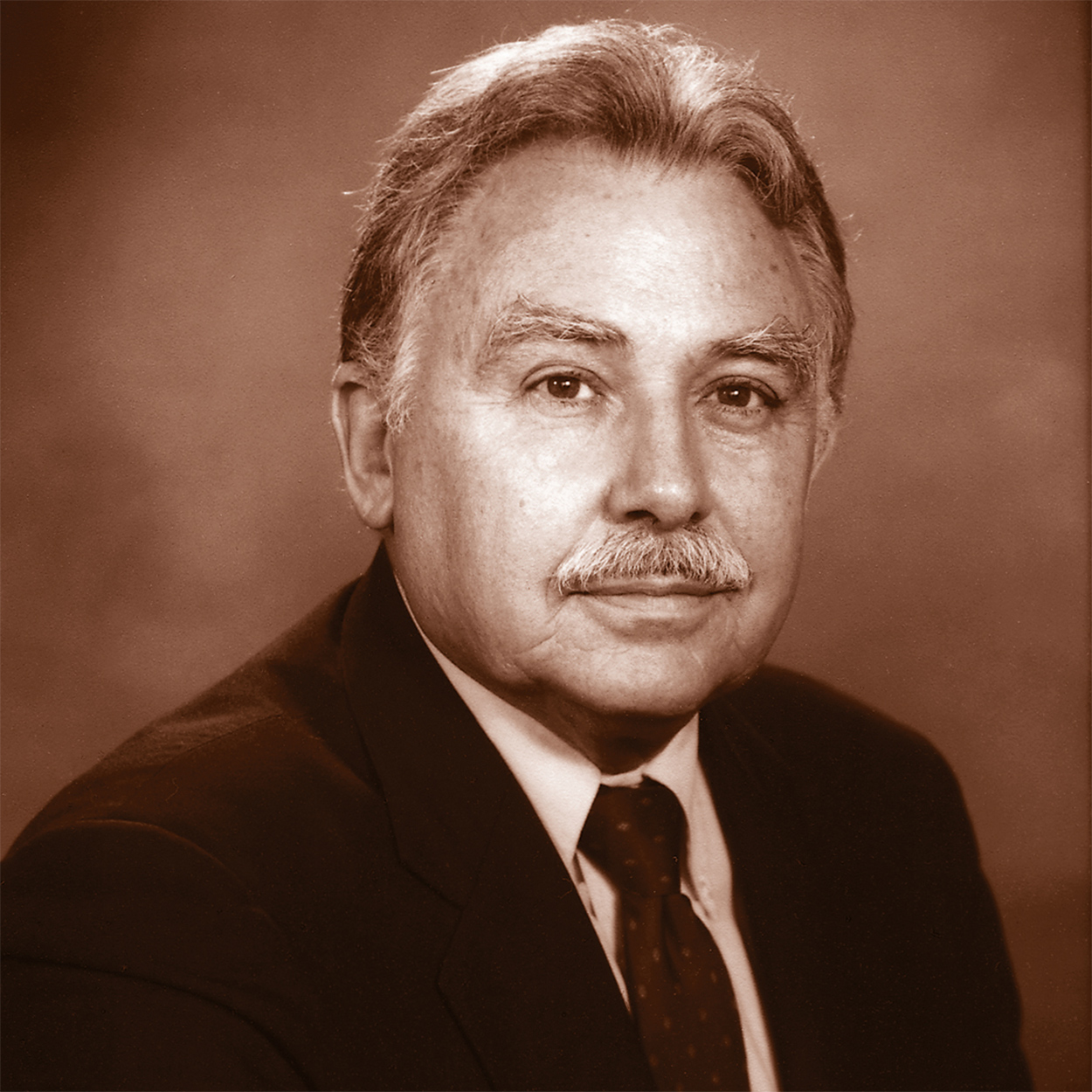Today’s society is experiencing epidemics of loneliness, depression, and anxiety. Even so, positive psychology and the Abrahamic religions both exhort that the virtue of hope has the potential to help people dealing with a wide range of challenges.
The eminent psychologist and Pulitzer Prize winner Erik Erikson spent his life in deep exploration of human development and potential. His influential theory featured the central concepts of “hope, fidelity, and care” that he framed as the psychosocial strengths “that [can] emerge from the struggles … of life” (p. 55). For Erikson, hope was a foundational virtue for the best kind of life—a life that produces a mature adult who finds meaning and purpose in giving hope and “generative” care to the rising and fledgling generations.
Erikson was well aware that his core values of hope, fidelity, and care closely corresponded with the “major credal values [of] hope, faith, and charity” (p. 58). He seemed disheartened, however, that these core values had lost their centrality in American culture. These virtues are, however, still central for some families and there is much we can learn from them.
For about a quarter of a century, the American Families of Faith national research project has identified “exemplary” families through clergy referrals to the strongest and most faithful families in various Jewish, Christian, and Muslim congregations.
In a recently published research study in Family Relations, we note that although we did not ask questions about “hope,” the virtue was still mentioned a staggering 565 times in 198 interviews. But how and why did hope matter to these diverse but exemplary families?
Theme 1: Religious Beliefs Inspired Hope
In many instances, participants reported that their faith was both a source and sustainer of hope. An Asian American Christian father named Chongming explained,
When something happened in my family, faith let us know we have the same hope… When I had challenges of career or health, I realized that all of our life is in God’s hand. This gives me a lot of comfort and also gives me promise and rest.
Many described God as a benevolent provider of hope in their lives. Derek, a Black non-denominational Christian husband, shared,
You know where your help comes from, and it’s not in man. You can’t put your trust in man … we know God is going to take care of us, no matter what. … We put all our hope [and] our trust in Jesus, and that’s it.
A number of participants reported that their belief in an afterlife helped them cope with the loss of family members and friends and also when they contemplated their own eventual death. A Jewish mother named Moriah said that strong family connections and her belief in an afterlife both provided hope:
We were all in my Dad’s hospital room when he passed away … all our brothers and sisters were there … and everybody was just weeping. … [My daughter], this little bitty 3-year-old … looks out the window and she says, “Mommy, look! It is … the first time I ever saw a rainbow.” And we looked out the window, and there was a double rainbow, and it was just this incredible moment, and to me, it was like … [my] Daddy … [was] on the right hand of God almost, and he [was] saying, “Please give these poor wretched souls some hope and some sign.”
Theme 2: Religious Practices Inspired Hope
In addition to sacred beliefs, participants shared that religious practices were vital in creating hope in themselves and their families. Studying and remembering religious texts, praying, and attending worship services were the religious practices most frequently discussed. Chelsea, a teenage Evangelical Christian daughter, explained that the Bible gave her hope when her grandfather was fighting serious health problems. She said,
Should the worst-case scenario happen … the Bible … talks about the hope of a resurrection or a time when sicknesses will be no more. These are things that help you. … That’s not to say that it’s not difficult. But just keeping that hope … so much of it is based on hope and faith in the Bible, which gives you that hope.
Chelsea’s mention of the Bible as her foundation for “hope and faith” was representative of other participants who found hope in sacred texts.
Prayer was also repeatedly spoken of in connection with hope. An Arab-American Muslim wife named Amana explained that prayer inspired hope for her and her husband:
Prayer is very powerful in our life. … Allah did not put prayer just for us to talk to Him. It is for us to remember He is there. And by doing it five times a day … starting our day … remembering Allah is there … and in the middle of the day at noon, we again remind ourselves, ‘Do not worry about anything in your life, Allah is there …’ By reminding ourselves that someone is there for us, we get that hope in life, and live our life again and again with that hope.
Along with sacred texts and prayer, many families spoke of worship services also bringing feelings of hope. Several individuals pointed out that their faith community and beliefs about worshipping together inspired hope during new or challenging times. Lian, an Asian Christian mother, explained that attending church created hope within herself and her husband during the early stages of their conversion to Christianity. She said that initially:
We knew nothing about faith, [but] we were curious about church. … Later, we went to church and Bible study group and gradually understood that the church is to show God’s love according to the Bible. … We [now] have God to rely on in this world, and we have hope of eternal life.
Not only did hope in God reportedly help Lian and other families get through new or challenging times, but it was also reported to affect other areas of family functioning.
Theme 3: Hope and Family Life
In 39% of their hope-related discussions, interview participants spoke of hope as a family virtue rather than an individual one. References such as “our hope” and “we have hope” were frequently used by both wives and husbands as they spoke of hope strengthening their marriage. Spouses also repeatedly mentioned that hope helped them to minimize and resolve conflict.
Participants also described how hope helped them in parenting and mentioned the power and importance of teaching their children to develop hope. A Hispanic Catholic father named Javier spoke about how important it was to give the gift of hope to his children:
Out there, there’s a world without harmony that [every child] is going to encounter. [When that collision happens], it is … faith … that’s going to keep that person from getting in trouble. … So, a lot of those things that we are doing [for our kids are to prepare them and] … to add a little bit of hope that things are going to be okay in the future.
Yameen, an Arab-American Muslim husband, shared that his religious values of faith and hope were foundational not only in parenting but in resolving marital conflict:
Patien[ce] and hope [are] stressed so much. If there is a time when we were argu[ing]—because [patience and hope are] so much [in]grained in us—we stopped. … We have … hope that things will get better …
Theme 4: The Experience of Religious Hope in Moving Forward and Overcoming
Several participants specifically spoke of hope for the future and hope in overcoming challenges as potent benefits of “hope in the future.” Many participants also spoke of how their religious communities, beliefs, and practices played a vital role in creating hope to overcome a variety of challenges in their lives. A Black Christian father named Ty similarly emphasized:
We are not without hope. We are not hopeless … [we] have prayer … those are anchors that we have that others may not have. Although it may look bleak right now, there’s always hope because of the hope that you have in Christ.
A Jewish father named Max said:
There have been times in our lives when we’ve been under a lot of strain; [we experienced the] loss of a child before birth. … We have a special [needs] child that we have to do special things with, [but] … we [have] hope that God is somehow guiding us to do the best we can with that child. So even … when things aren’t always as perfect as you would like them … you look towards God to try to find some [hope and] solace.
Conclusion
For Max and other exemplary partners and parents we interviewed, God is a sacred source and sustainer of hope. In comparison, positive psychology presents the concept of self-fulfilling prophecy (or Pygmalion effect), documenting that when humans expect a positive outcome, they tend to act in ways that make the desired outcome significantly more probable. From both vantages, hope can be a catalyst for positively coping with many issues we see in society today—from loneliness to mental health struggles to conflict resolution to strength and optimism in the face of profound challenges. In the “faith, hope, and charity” trio of virtues, hope is the often overlooked “middle child.” However, hope is an important member of the family of virtues that helps exemplary families build optimism, unity, and resiliency.
















